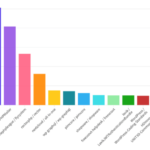What Does a PHP Developer Do? A PHP developer designs, tests, and maintains web applications using PHP, a server-side scripting language.
Their role includes integrating front-end elements, working with databases, using PHP frameworks, and collaborating with other team members.

Did you know that version 7 is used by 65.9% of all the websites who use PHP. Chances are, you’ve interacted with PHP more than you realize.
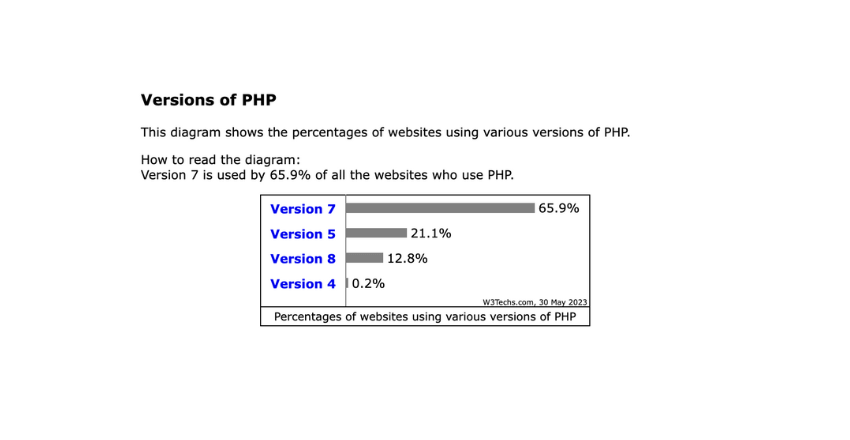
As we find ourselves immersed deeper into the digital age, the role of a PHP developer becomes increasingly crucial. These developers are the invisible architects of the web, shaping our digital experiences in ways we may never fully appreciate.
But what exactly does a PHP developer do? Let’s demystify this important tech role.
The Birth and Evolution of PHP: A Brief History
PHP, short for Hypertext Preprocessor, is a versatile scripting language designed primarily for web development. Born in 1994, PHP has grown to become a cornerstone of the web, powering popular platforms like WordPress and Facebook. Its flexibility, ease of integration, and strong database connection capabilities have shaped its usage over the years.
The Role of a PHP Developer
PHP developers use their skills to write, test, and maintain the code for web applications. They are responsible for integrating the frontend elements built by web designers, ensuring that all parts of a web application work together seamlessly.
Let’s delve into the roles of a PHP developer with some examples:
1. Designing and Developing Web Applications
PHP developers primarily write server-side web application logic. They use PHP to create back-end components, connect the application with other web services, and support front-end developers by integrating their work with the application. For instance, a PHP developer might design an e-commerce website, creating functions for adding products to a shopping cart or processing payments.
2. Database Integration and Management
PHP developers often interact with databases, mainly SQL-based systems like MySQL or PostgreSQL. They create queries to store, retrieve, or manipulate data. For example, in a blog site, a PHP developer may write code that pulls blog posts from a database to display them on a webpage.
3. Working with PHP Frameworks
PHP developers use frameworks like Laravel, Symfony, or CodeIgniter to speed up the development process and write cleaner, more reliable code. For instance, using Laravel, a PHP developer can use built-in functions for routing, caching, and authentication, rather than writing these from scratch.
4. Integration of User-facing Elements
PHP developers work closely with front-end developers to ensure that the site looks good and works well. They integrate the front-end elements (built by front-end developers) into the application. For example, a PHP developer might implement the back-end functionality for a user registration form designed by a front-end developer.
5. Testing and Debugging
PHP developers use testing frameworks like PHPUnit to perform unit tests, ensuring that individual sections of code are working correctly. They also debug code to fix errors. For instance, if a website visitor encounters a problem when submitting a form, the PHP developer would need to find and fix the problem.
6. Maintaining and Improving Existing Code
PHP developers often work on existing web applications, improving functionality, and making the code more efficient. For example, they might optimize a website to load faster, or they might update an old codebase to use a more modern PHP version or framework.
7. Collaborating with Other Team Members
PHP developers are part of a larger web development team that usually includes roles such as front-end developers, project managers, and UX/UI designers. They need to communicate effectively with these team members to ensure that the website is built to specification and that their code is aligned with the overall project requirements.
As you can see, the role of a PHP developer is multi-faceted and involves a variety of tasks, all of which contribute to creating successful web applications.
Essential Skills for a PHP Developer
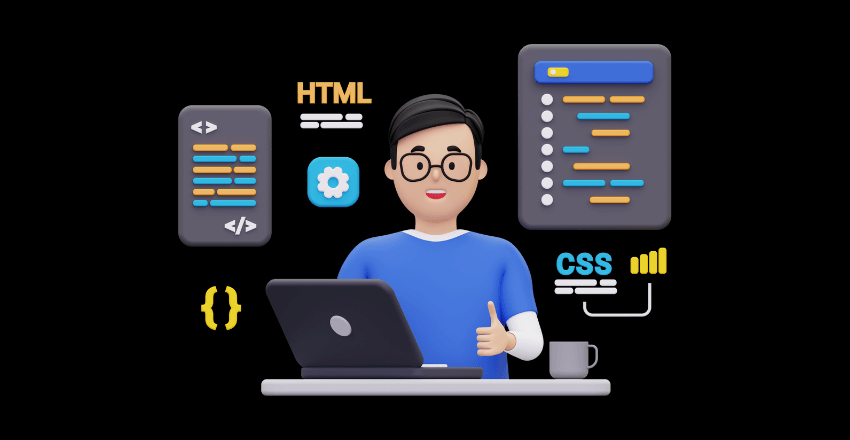
Beyond PHP, developers need a solid grasp of HTML, CSS, JavaScript, and SQL. They should also understand MVC design patterns, have experience with PHP frameworks like Laravel or Symfony, and be familiar with version control systems like Git.
As a PHP developer, one needs a specific set of skills to excel in the role. These skills not only cover technical abilities but also problem-solving capabilities and good communication.
Here are some of the key skills a PHP developer should possess:
1. Proficiency in PHP
This is the most obvious skill needed. A PHP developer must understand PHP syntax and semantics and be able to write, analyze, and debug PHP code effectively.
2. Knowledge of HTML, CSS, and JavaScript
While PHP is a server-side scripting language, HTML, CSS, and JavaScript are client-side technologies. A good PHP developer should be proficient in these to effectively work with front-end developers or even handle some front-end tasks themselves.
3. SQL/MySQL knowledge
Most web applications have a database back-end. Knowledge of database technologies, especially SQL-based systems like MySQL, is crucial for a PHP developer.
4. Familiarity with PHP Frameworks
Frameworks simplify the process of development and keep the code organized. Knowledge of at least one PHP framework like Laravel, Symfony, CodeIgniter, or Yii2 is often required.
5. Understanding of Object-Oriented Programming (OOP)
PHP is an object-oriented language. As such, understanding OOP concepts and knowing how to apply them in PHP is very important.
6. Knowledge of Version Control Systems (VCS)
Version control systems, like Git, allow developers to keep track of changes in the codebase, making it possible to review or revert changes if needed. It’s an essential tool for collaborative environments.
7. Problem-Solving Skills
A developer’s job is fundamentally about solving problems. Good problem-solving skills, including the ability to break down complex problems and devise effective solutions, are crucial.
8. Good Communication Skills
PHP developers often work as part of a team and may need to interact with clients or non-technical team members. Hence, good communication skills are important to express technical information in an accessible way.
9. Attention to Detail
Coding requires a high level of precision. One small mistake can break an entire program, so attention to detail is crucial.
10. Desire to Learn
Technology is always evolving. A good PHP developer keeps up with the latest trends and updates in technology to stay relevant.
What are the top skills for PHP developer?
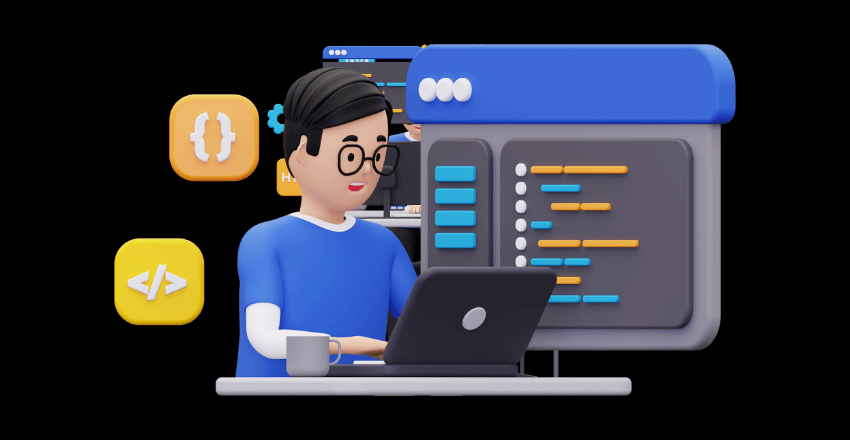
1. Mastery of a Specific PHP Framework
While knowledge of PHP frameworks in general is crucial, specializing in one or more specific frameworks can make a PHP developer particularly valuable. For example, Laravel and Symfony are widely used and highly sought-after skills in the industry.
2. Understanding of RESTful APIs
Many modern web applications make use of RESTful APIs. Understanding how to consume these APIs and perhaps even how to design and implement them is a valuable skill.
3. Experience with Testing and Debugging
Writing code is just one aspect of a developer’s job. Being able to test that code effectively – and debug when things go wrong – is just as important. Knowledge of PHP testing frameworks like PHPUnit is highly beneficial.
4. Familiarity with DevOps Practices
While it’s not strictly a coding skill, familiarity with DevOps practices and tools can be a big plus. This could include understanding continuous integration/continuous deployment (CI/CD), working with tools like Docker, or using cloud platforms like AWS or Google Cloud.
5. Knowledge of Web Security Practices
Security is a top concern in web development. Understanding common web vulnerabilities (like those outlined in the OWASP Top 10) and knowing how to write secure PHP code is an invaluable skill.
6. Experience with Performance Optimization
The ability to write code that runs efficiently and doesn’t waste server resources is a highly sought-after skill. This involves understanding PHP performance pitfalls and knowing how to profile and optimize PHP code.
7. Proficiency in AJAX
Asynchronous JavaScript and XML (AJAX) is a set of web development techniques used for creating asynchronous web applications. With AJAX, web applications can send and retrieve data from a server asynchronously without interfering with the display and behavior of the existing page.
8. Knowledge of Content Management Systems (CMS)
Many websites are built on CMS like WordPress (which is written in PHP), Joomla, or Drupal. Knowing how to work with these systems – including how to build and customize themes and plugins – can be a valuable skill.
9. Understanding of Design Patterns
Design patterns are typical solutions to common problems in software design. Each pattern is like a blueprint that you can customize to solve a particular design problem in your code.
10. Soft Skills
Leadership, time management, and customer service are just a few soft skills that can set a PHP developer apart. They become especially important as a developer moves up into senior or managerial roles.
Each of these skills contributes to the making of a versatile and high-performing PHP developer.
The Day-to-Day Tasks of a PHP Developer
Typically, a PHP developer’s day involves writing and maintaining code, debugging programs, collaborating with frontend developers and designers, and integrating data storage solutions.
The Impact and Influence of PHP Developers in the Tech World
It’s hard to overstate the influence of PHP developers. They have shaped and continue to shape the digital landscape, building websites and applications that millions of people rely on every day.
Expert Opinions, Insights, and Quotes

As Rasmus Lerdorf, the creator of PHP, once said, “I really don’t like programming. I built this tool to program less so that I could just reuse code.” PHP developers embody this ethos of efficient problem-solving and constant innovation.
Practical Tips and Recommendations:
If you’re interested in becoming a PHP developer, start by learning the basics of PHP and related web technologies. Practice by building simple web applications and gradually take on more complex projects.
Counterarguments and Balanced Viewpoints:
Critics often point out that PHP is an older language with some inconsistencies. However, its widespread use, massive support community, and continual updates make it a reliable and pragmatic choice for web development.
Developer FAQs
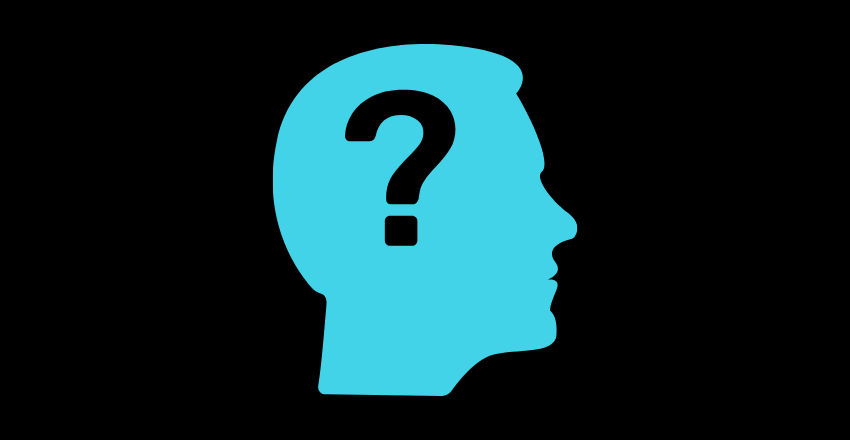
Q1: How do PHP developers stay relevant in an evolving tech landscape?
A1: PHP developers should consistently update their skills and learn new technologies. Participating in continuous education, following industry trends, engaging in developer communities, and exploring emerging tools and languages are good practices.
Q2: How can PHP developers enhance the security of the web applications they build?
A2: PHP developers can enhance web security by writing secure code, using secure PHP frameworks, implementing proper error handling, validating user input, and conducting regular security audits.
Q3: What is the role of a PHP developer in API integration and development?
A3: PHP developers can use PHP to create and consume RESTful APIs, which allow different software applications to communicate and share data. They can also integrate third-party APIs into the applications they develop.
Q4: How do PHP developers collaborate with other roles in a typical web development project?
A4: PHP developers often work closely with front-end developers, project managers, UI/UX designers, and sometimes clients. They need to understand the project requirements clearly and communicate effectively to ensure seamless collaboration.
Q5: How do PHP developers approach performance optimization in their projects?
A5: PHP developers can optimize performance by writing efficient code, using caching mechanisms, optimizing database queries, and utilizing PHP profiling tools to find and fix bottlenecks.
Q6: How can a PHP developer handle form data securely in PHP?
A6: A PHP developer can securely handle form data by using methods like data filtering and validation. Here is an example of how one might handle form data:
if ($_SERVER["REQUEST_METHOD"] == "POST") { $name = filter_input(INPUT_POST, 'name', FILTER_SANITIZE_STRING); if (empty($name)) { echo "Name is required"; } else { echo "Hello, " . $name; } }Q7: How does a PHP developer manage sessions in a web application?
A2: PHP has built-in session management functions that help developers maintain state between different pages of a web application. Here’s an example of how to start a session and set a session variable:
session_start(); $_SESSION["username"] = "PHP Developer";Q8: How can a PHP developer execute a MySQL query using PHP?
A8: PHP developers often use the MySQLi or PDO extensions to interact with a MySQL database. Here’s an example using PDO:
$dbh = new PDO('mysql:host=localhost;dbname=test', $user, $pass); $stmt = $dbh->query("SELECT * FROM users"); while ($row = $stmt->fetch()) { echo $row['username']."<br />\n"; }Q9: How does a PHP developer handle exceptions in PHP?
A9: PHP provides a try-catch block for handling exceptions. Here is an example:
try { // generate an exception to test the catch block throw new Exception("This is a test exception"); } catch (Exception $e) { echo "Caught exception: ", $e->getMessage(), "\n"; }Q10: How does a PHP developer use OOP principles in PHP development?
A10: PHP supports object-oriented programming. Developers can define classes, properties, and methods, and create objects. Here’s a simple example:
class Car { public $color; function setColor($color) { $this->color = $color; } } $myCar = new Car(); $myCar->setColor("red"); echo $myCar->color;These examples provide insights into how a PHP developer would write code to handle common tasks in PHP development.
Wrapping up
PHP developers play an indispensable role in our digital world, crafting the virtual environments we navigate daily.
Whether you’re a budding programmer, a business owner looking to understand your web team better, or simply a curious individual, understanding the work of PHP developers can offer valuable insights into how our digital world is constructed.
Michael is an accomplished technical author renowned for his expertise in scientific computer science. With a distinguished career as a development manager at Yahoo, Walmart, and FedEx, he has demonstrated exceptional leadership and technical acumen in delivering successful projects.
With an unwavering interest in PHP development, Michael has been at the forefront of this powerful programming language for the past 22 years. His passion for PHP has driven him to explore its vast potential and harness its capabilities to create innovative and scalable web solutions. Michael’s expertise in PHP development encompasses various frameworks, libraries, and best practices, making him a trusted authority in the field.



![How to use Cursor AI to write PHP Code[Example]](https://hirephpdeveloper.dev/wp-content/uploads/2025/03/How-to-use-Cursor-AI-to-write-PHP-Code-1-150x150.png)

